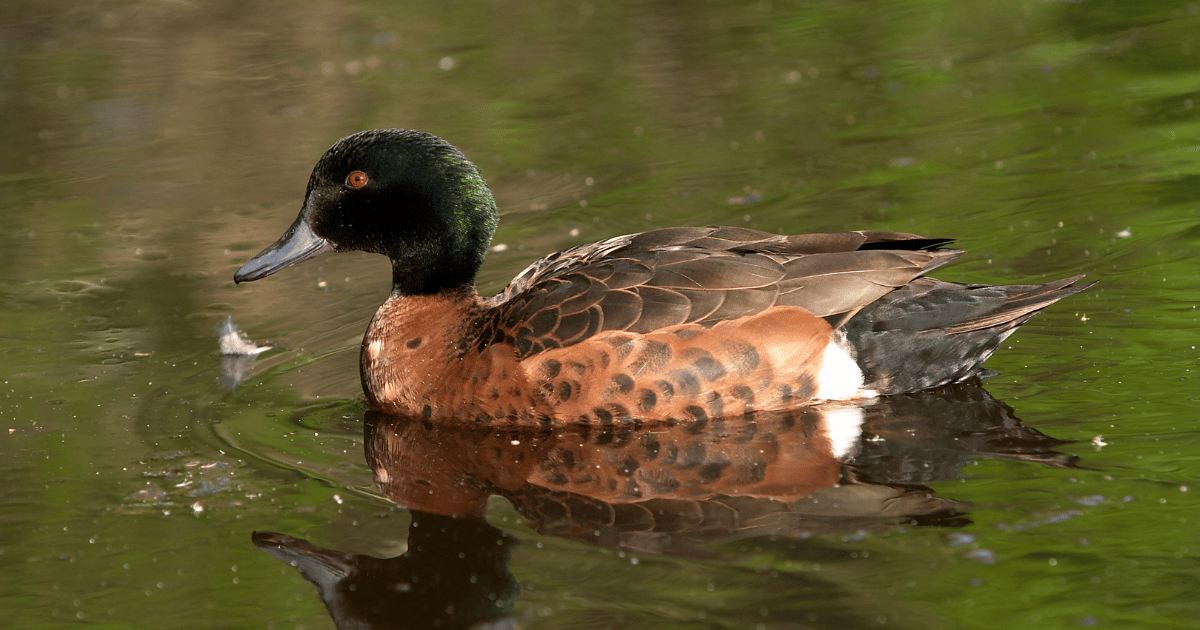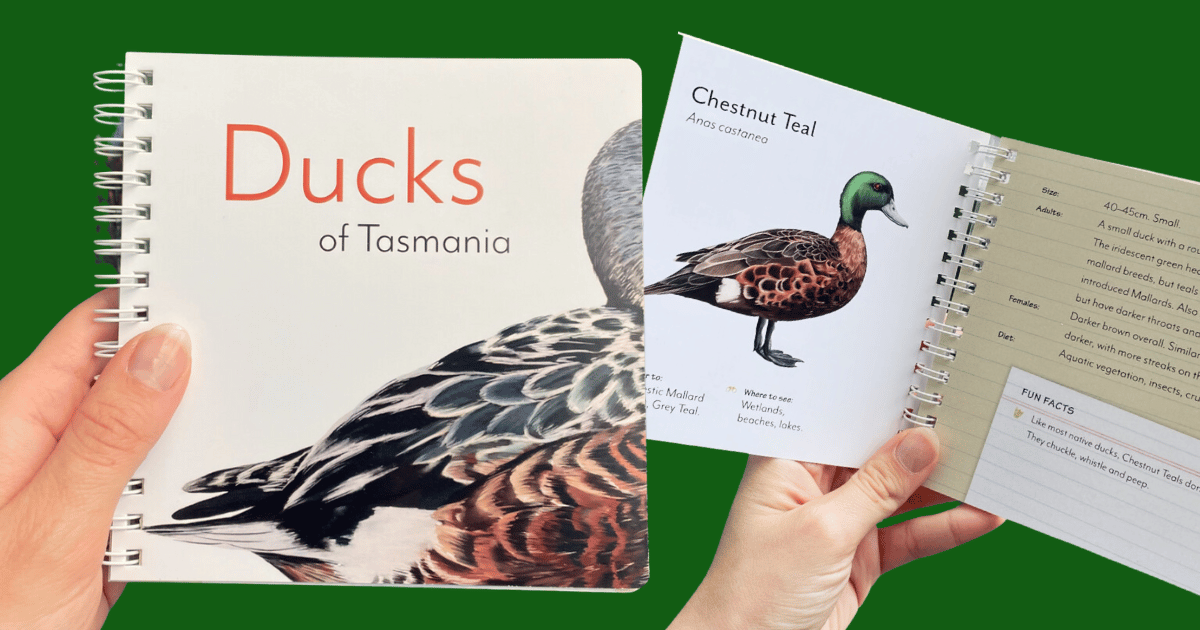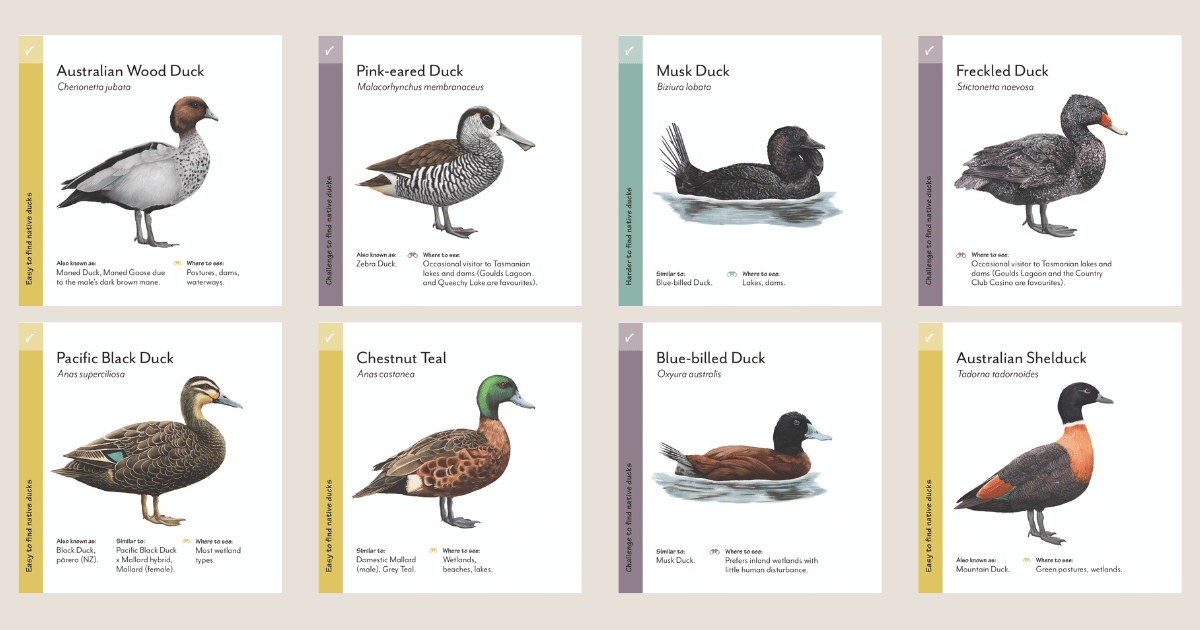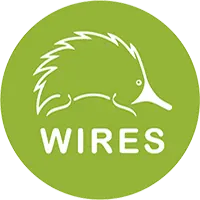
Feathers of Change: Native Duck Identification Project
Thursday, April 11, 2024
The Native Duck Identification Project in Tasmania has recently concluded. It was a collaboration between the Glenorchy City Council, Derwent Estuary Program, and Pacific Black Duck Conservation. The project aimed to identify ducks, raise awareness, identify knowledge gaps, and preserve native species and habitats and was funded by the WIRES National Grants Program.
Objective of the Project
The main goal of this project was to tackle the challenges caused by the hybridisation of native ducks and introduced mallards, which threaten the native species populations. Many mallards and their hybrids can contaminate the local water and shore, creating safety concerns for wildlife and the community. To raise awareness and encourage responsible interaction with these feathered inhabitants, this project aimed to develop an educational tool in the form of a family-friendly duck identification booklet.
A Valuable Resource
The WIRES Grant was used to commission detailed illustrations for the booklet, which was rich in interesting information about native and introduced ducks. It will serve as a valuable resource for council rangers and be distributed to various community groups.

Empowering Impact
WIRES funding has allowed for creating a booklet with new duck illustrations. This funding has also helped secure additional funding from councils, enabling more booklets to be printed and distributed to a wider audience. The Pacific Black Duck Conservation Group and Derwent Estuary Program plan to strategically distribute these booklets to address specific duck feeding and dumping issues.

Wide Distribution and Community Reach
The booklets will be widely distributed to local communities, schools, cafes, environmental organisations, wildlife sanctuaries, zoos, and more. This initiative aims to educate and inspire responsible actions and community-driven conservation efforts. WIRES carers in Tasmania will also receive copies of the booklets to ensure that the information reaches those who are on the frontlines of wildlife rescue and education.
Community Collaboration, Education and Change
The Native Duck Identification Booklet project is a great example of community collaboration and education in wildlife conservation. The project is creating a ripple effect of positive change by addressing the challenges posed by hybridisation and dumping. With support from WIRES, Glenorchy City Council, the Derwent Estuary Program, and the Pacific Black Duck Conservation
Recent Posts
WIRES launches its first wildlife rehabilitation centre - Mullyang
WIRES Emergency Response in the wake of ex-tropical cyclone Alfred
International Women’s Day Volunteer Spotlight: Shelley
Tropical Cyclone Alfred – Emergency Wildlife Advice
Interview with WIRES Training and Development
Celebrating Women in Science: The Journey of Holly, Wildlife Conservationist and WIRES Team Member
